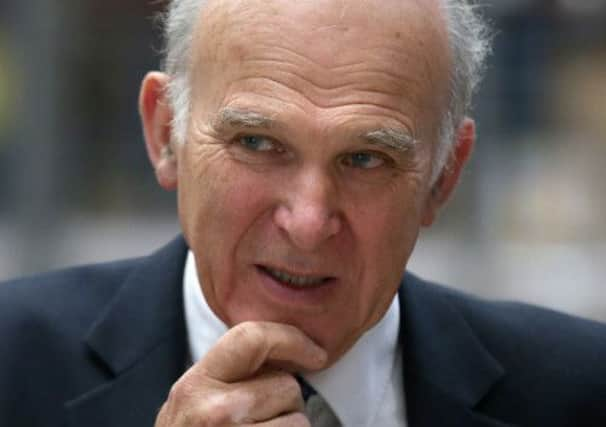Bank of England like the Taliban, says Cable


The Business Secretary believes that its demands that banks must boost the levels of capital they hold to protect against future financial shocks is deterring small business lending and holding back recovery.
Mr Cable told the Financial Times: “One of the anxieties in the business community is that the so-called ‘capital Taliban’ in the Bank of England are imposing restrictions which at this delicate stage of recovery actually make it more difficult for companies to operate and expand.”
Advertisement
Hide AdAdvertisement
Hide AdMr Cable has expressed similar views before, but the strong language of his latest intervention comes less than a month into the tenure of new Bank governor Mark Carney.
It remains to be seen whether his remarks will persuade policymakers to soften their stance or simply harden their resolve.
Chancellor George Osborne was reported to share Mr Cable’s views. One Treasury official told the FT that it was hoped that Mr Carney would rein in the “jihadist” tendency in Threadneedle Street against the banks.
The Bank’s new Prudential Regulation Authority (PRA) has ordered Britain’s five biggest lenders to raise £13.4 billion to plug a £27.1 billion gap in their finances.
Advertisement
Hide AdAdvertisement
Hide AdNationwide, Britain’s biggest building society, was reportedly left with a £1 billion hole.
Two weeks ago it announced that it had been able to meet the PRA’s demand for it to strengthen its leverage ratio - a key measure of financial strength - to 3% from 2%, without raising extra funds from investors.
Critics of the regulator say that in striving to meet the new targets, banks and building societies will have to slow new lending to households and small businesses that is desperately needed to boost the UK’s ailing economy.
While official figures tomorrow are expected to show that growth improved to around 0.6% for the second quarter, many economists believe the recovery remains fragile, and gross domestic product is well below its pre-recession peak.
Advertisement
Hide AdAdvertisement
Hide AdChief executive of the British Bankers’ Association Anthony Browne told BBC Radio 4’s Today programme: “I think Vince Cable is quoting other people, rather than trying to use the word himself.
“But there clearly is concern in various parts of the industry about the pace at which they’re required to raise their capital ratios.
“The Bank of England financial policy committee has these counter-cyclical policy requirements, where the amount of capital they require banks to have they know is counter-cyclical economically. You push capital requirements up in a boom, you push them down when there’s a recession.
“The trouble at the moment - and indeed for the last five years - is that we’ve had this massive increase in capital amongst banks of £165 billion during a time of low economic growth. Across the banking sector as a whole, there clearly is a correlation in the short term between requiring banks to massively upgrade the amount of capital they have and the amount of lending and the amount of economic growth.”